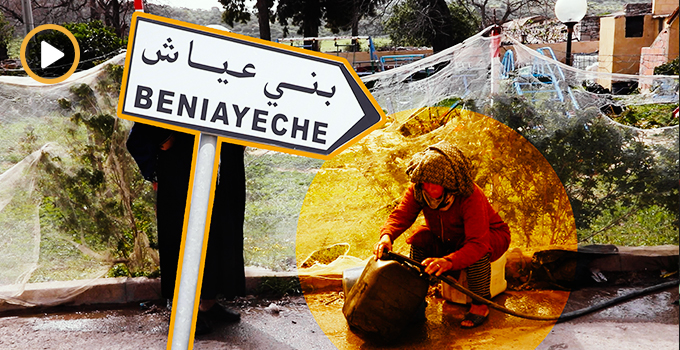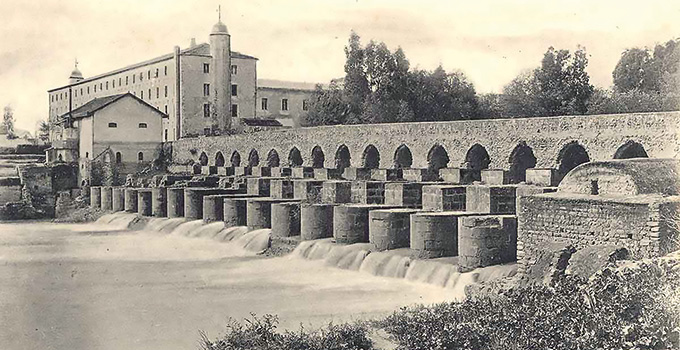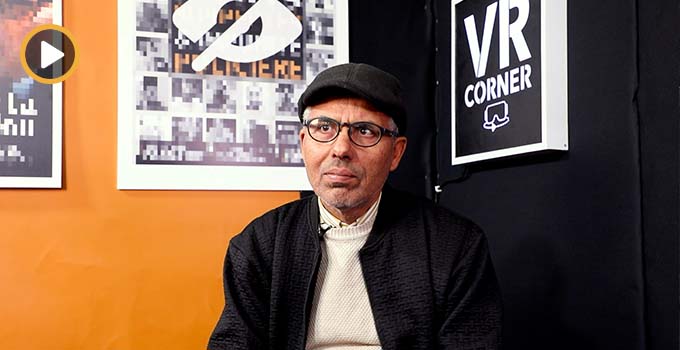Dear Mr. Z.A.B.A
California, May 14th, 2008
Source: http://blog.tunisien.org/
I am pleased to inform you that I received your letter, the one you sent to the younger Tunisians around the world through http://www.pactejeunesse.tn, asking me and my fellow Tunisians to work together on coming up with ideas for a brighter future.
Through this letter, I will try to tackle the prime and most lucrative sector for all nations through the history of humanity: education.
Dr. Mohammed Yunus, a Nobel Prize winner for his work with the poor, stated in one his speeches held in San Francisco on January 8th 2008: “Winning a Nobel Prize is so easy, all you have to do is: reverse all the methods used by the conventional banks”. He decided to took such a drastic, unconventional pathway dealing with economic failures when he acknowledged that existing bank policies were not meeting the needs of the general mass, a lot of people are left behind and that number is growing faster and faster.
I am using the example of Dr. Yunus to emphasize the fact that before we can cure any problem, we need first to identify the barrier and agree on the significance of eradicating it.
Therefore, you would need to agree with me that our educational system is fragile and needs restructuring before you go on with this letter.
This reform will start from elementary school through higher education. Through my analysis, I will try to be pragmatic rather than philosophical and I will base everything on my own experience and of those who were around me while growing up.
Although, I should start from pre-school, but since I can’t remember almost anything about my pre-school experience, I will skip that phase and only discuss elementary school in this letter.
English instead of French:
Looking back at our history, I can understand why we were taught French as a second language and mastered it through the schooling years. We had to spend countless hours trying to absorb the complexity of a language that is now losing its ground to a more commonly adopted language, a language that outperform all the other languages in economic terms, international trades, scientific researches, etc…
If France it self, understood the importance of English and started teaching it to its people at an early age and integrated it in its spoken dialect, and since we are no better than France yet, we should follow its path and adopt the English language.
According to La Francophonie dans le monde 2006-2007 there are128 million Francophones – Speak French (as a native or adopted language) fluently and use it on a regular basis.
On the other hand, according to research by the British Council, “English has official or special status in at least seventy-five countries with a total population of over two billion. English is spoken as a native language by around 375 million and as a second language by around 375 million speakers in the world. Speakers of English as a second language will soon outnumber those who speak it as a first language. Around 750 million people are believed to speak English as a foreign language. One out of four of the world’s population speaks English to some level of competence. Demand from the other three-quarters is increasing.”
Therefore, you can clearly notice where both languages stand and foresee their future.
Any endorsement we are currently getting from France that might be lost because of such decision; UK and USA will gladly step up and bridge that gap.
As you know, tourism revenues cover over 60% of our trade deficit and it is also a sector that needs innovative transformation. If not all, the vast majority of our visitors speak English. By having Tunisians speak English comfortably, we will eliminate the intimidation that a lot of our guests had to experience for not being able to speak neither French nor Arabic. Speaking English might also endorse the quality of our vacationers and we can get more visitors from the North American region. I will elaborate on this section more in my next letter about the economic reform.
Scientific research papers, international trade symbols and terms are all in English and since we are already falling behind and trying to catch up, we shouldn’t waste more time translating all those documents to French and Arabic before we can even read them. The resulted documents might not make sense in some cases where translation is not done correctly or where translation shouldn’t be done to start with, such as in computer programming languages.
Reform the Islamic education:
If any religious education is needed then it should be the study of the major religions instead of just Islam. Students need to know that there are people in this world with different faith and we should accept it and tolerate it.
Through my 6 years in primary school, every time I had an “Islamic Education” class, the idea of we, the Muslims, are superior to everybody else keeps getting imposed in my naive mind. Later, as I grew up and questioned things, I realized the imaginary reality that I lived in for years and I felt an immense resentment to teachers who filled my thoughts with such garbage disconnected from reality.
As a side note, those who claim that only Muslims end up in heaven. Are they aware that, when get sick and get operated on, the machines and the medication used to cure them are actually the creation the “infidels”?
Some people might disagree with this reform, I urge those people to create Friday evening or Sunday schools that host Islamic education classes and parents will be free to send their kids there or not. They can also establish Islamic schools for parents who want their kids to have an Islamic education just like in the Middle East.
Besides, kids in early age come with a hungry mind looking for answers to everything they see, hear or experience. It won’t be fair if we teach them something if we get questioned about, our answer, most of the time ends up being: That’s how it was written in the book and we shouldn’t question it.
This could be the best approach to defend our country from fanatic Islamists. There will be no way for them to recruit youngsters since they will feel intimidated just by talking to them because of the broader education and vision our young people will have about religion.
More play time and art:
Children between the age of 5 and 11 can relate to things through games a lot more than having a teacher holding a wooden long stick that might come their way and hunt them at times when they least expect it. Five years ago, I have built a game called “The Peak Game” available online at http://peakstudents.net/game/ . This game is being used by school districts in California, Chicago and Sweden and teaches little kids the importance of energy and how to wisely use it at the home and community levels. I believe Tunisian kids should have the same chance as every other kid and use similar tools to comprehend important issues through playing and having a good time.
The picture of a teacher should change from the fearful old man or woman to the older friend who is admired and looked up to by its students. That way, the communication between the 2 parts of the educational system becomes easier and built on trust, love rather than hate and fear and at times hypocrisy.
We should have the kids watch more educational videos about history, biology, physics and science to make these subjects less abstract and attractive.
We must be creative on coming with ways to deliver the information to our children, traditional methods haven’t been very successful and you can easily measure that failure just by asking people around you about the Tunisian history.
Outside of the working hours, primary school should play the role of a playground where kids go to play.
Kids from the age of 5 to 11 should also get the chance of playing sports. I am talking about all the primary schools and not just the private and privileged ones. These practices should conform a high quality where kids get to learn new tricks, set goals and meet them through the course of the year rather than having them run around in circles for an hour once a week and call that a Physical Education class.
If we don’t have resources, we can use high school or college students as volunteers and apply all those volunteering hours toward their degree, which is something that I will discuss in a next letter when I talk about high school education.
We also need to introduce more art classes to kids at their early age, classes such as music, theatre, dance, photography, etc…
This will make kids appreciate school and look forward to it. It will also feed and develop the creative part of their brain.
Art, nowadays, is being used by may Psychological schools of thoughts and by letting kids express them selves through art, we can detect signs of troubled or abnormal behavior and hopefully fix it at an early stage.
This can only be done by having an onsite counselor with a degree in Psychology and who will be working with the young students on a daily basis to help them overcome issues that nor their parents nor teachers can understand and assist them through it.
Prohibit physical abuse, really prohibit it! :
Use the “checks and balances” system where kids can report any physical abuse they experienced or witnessed. Teachers can get abusive for multiple reasons; one of them is when they fail miserably to make their topic interesting enough for young students to care about. Instead of spending time researching creative and innovative ways to grab the students’ attention, they chose the scare tactic instead. These teachers are missing the fact that their students might fear them but they have no respect to them or the institution they represent.
I am sure we already have laws that prohibit students’ physical abuse; however we are missing the tools needed to monitor violations and condemn the violators.
I still remember the different shapes of the sticks of most of my teachers in Elementary school and some of the beatings that I had to suffer.
Introduce voluntary work from an early age:
Kids should have field trips to places that need help. Let them volunteer and then write a report describing what they did, what they think the impact of their action is and if it made them feel better to do such thing.
Volunteering becomes a second nature in the Tunisian citizen and we won’t have to spend a lot of money later advertising for the importance of volunteering and helping each others out.
Volunteering programs would vary from cleaning beaches, taking care of old people in elder centers, cleaning the streets, painting public places, planting new trees in public parks, etc…
Yours truly,
Tunisien

Souce: http://blog.tunisien.org/
[NDLR: Cf. les nombreux commentaires sur la source de ce billet ]




iThere are no comments
Add yours